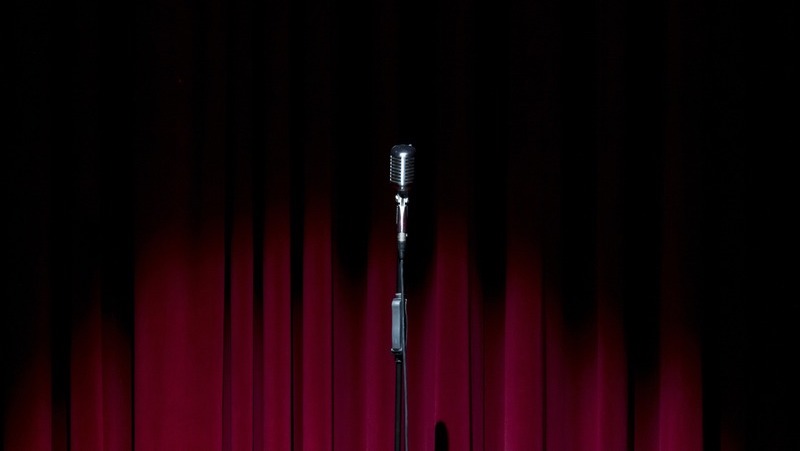
Helen Lederer on What It Takes to Be Funny
"Life is absurd. We are all small. We all want what we can’t get…and this is funny."
Any canny publisher knows that witty literature shifts more units, than, let’s say, books about maths, voles, or trees. And with good reason. Humor connects people. Laughter keeps the fear of loneliness at bay and acts as a protector against anxiety and depression. Of course we, as readers, won’t be consciously considering the mental health aspect when we find ourselves laughing at witty words on the page, but the cost of an efficiently funny paperback seems a small price to pay for the release from sadness. Seeing the world we live in reflected back at us from an absurd prism of ruthless observation can offer instant recognition and a feeling of our own relevance and even joy.
If only writing humorously was as easy to achieve. How many times have you—in hope—opened up a purportedly funny novel, only to find it try hard and derivative? A novel that promises laughter and doesn’t deliver is especially disappointing. If it succeeds in making you laugh, a book becomes instantly precious. And if it doesn’t, you may even pity the writer for getting it so wrong. Beware the funny writer who isn’t!
My own preferred ingredient for witty delivery is authenticity. Most of us want to be made to laugh by an author who “gets it”—the “it” being the universality of the human condition. It doesn’t matter how extreme or absurd the precinct (futuristic, realistic, time travel etc.), as long as the reader feel “seen,” then they can see others. Once this is achieved with accuracy, laughter is released, which in turn elicits a form of happiness, no matter how fleeting. No wonder comedy books are the holy grail in commercial fiction.
Seeing the world we live in reflected back at us from an absurd prism of ruthless observation can offer instant recognition and a feeling of our own relevance and even joy.
One somewhat dry, if helpful definition of humor is this: Comedy occurs when two or more clearly identifiable ideas that don’t match meet. And it’s (often) the juxtaposition of these incongruent, contrasting elements where assumptions are challenged, that cause laughter. Apparently if you follow this instruction there’s hope.
In my experience laughter usually happens at a moment of recognition; for example when you see someone falling over and then quickly pretending that they haven’t. The failure to be dignified followed by the effort to disguise it is funny.
When I wrote my memoir, I made myself visit my past, with all its awkward and shameful moments. Not particularly pretty, but rich terrain to at least attempt to reflect the absurdity of life. I wanted the challenge of using humor as a way of making what some might see as wrong or morally bad as hilarious and ridiculous while being true at the same time. Humor can release the writer from values of the past, along with judgment and disapproval, and instead, humor can become the very conduit for re-thinking events.
Life is absurd . We are all small. We all want what we can’t get…and this is funny. It just is. If we can big up the fact that human weakness is inevitable, we can also make it hysterical at the same time which is a double bonus. Any fall from pomposity or being outed as a “pretender” is almost guaranteed to produce humor.
Humor is the last bastion of human instinct free from exploitation or legality, but it does offer joy, hope, connection and community.
Aristotle said comedy is all about “surprise,” so if a character can be found to behave in an unpredictable way, the unexpected outcome can really hit the spot. On the other hand, most comedy comes from pain, and while the journey of pain/embarrassment/humiliation/ lack of power will elicit recognition, it’s the fervent unrelenting optimism of keeping going that creates the humor. Larry David is funny because he lacks empathy, says the unsayable, creates chaos, and keeps doing it!
Ultimately there is no “best in show” when it comes to judging comic novels. What a presumption! But the existence of a comedic literary platform is possibly the best one can hope for, a place where witty novels are celebrated and admired by other comedic practitioners and even though convention requires some kind of order of agreed preference, it can remain a platform of celebration rather than offering up a didactic “correct result.”
So, while a book prize can’t ever produce an irrefutable “Best” in show, it can highlight the best of intentions within all of us of us to discover and share our senses of humor with the world.
By setting up the Comedy Women In Print Prize for witty women writers, I hoped to increase the numbers of witty women being celebrated. And to ban the word “quirky” as a description of a witty women writer. There has been evidence in the recent past to show a lack of parity of women witty writers being credited with the same amount of nominations, visibility and accolades in the comedy literary canvas. There are worse things to do than try and change that.
However, it is good that none agrees on what is funny because humor is the last bastion of human instinct free from exploitation or legality, but it does offer joy, hope, connection and community.
__________________________________
In 2018, Helen set up the Comedy Women in Print Prize (CWIP), to celebrate and enable witty women writers.
Helen Lederer
Helen Lederer is a writer, actor, comedian, and presenter. Her memoir Not That I’m Bitter is out now in paperback and her novel, Losing It, was nominated for the Bollinger Everyman PG Wodehouse Prize for Comic Fiction.



















